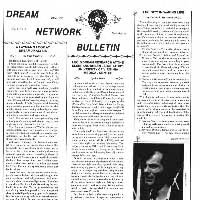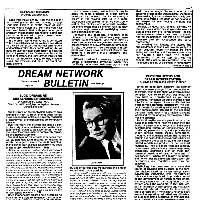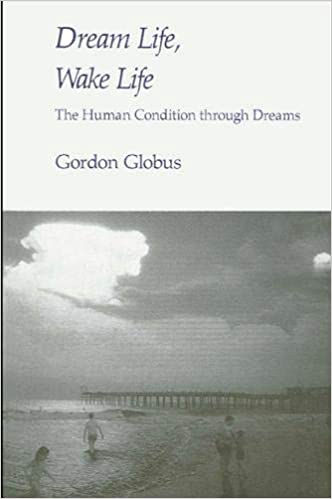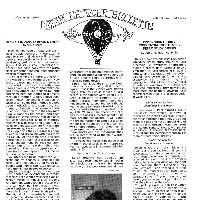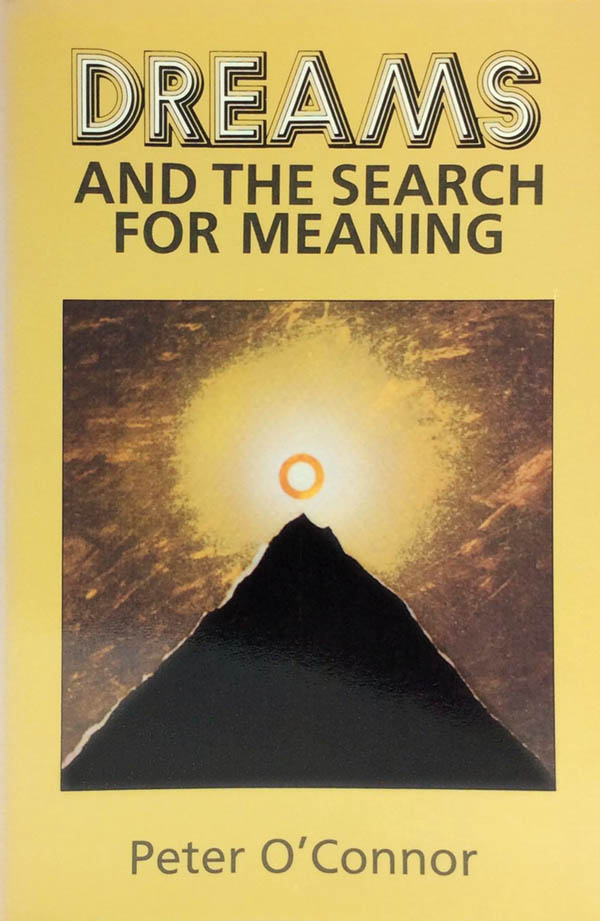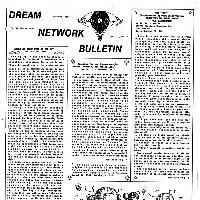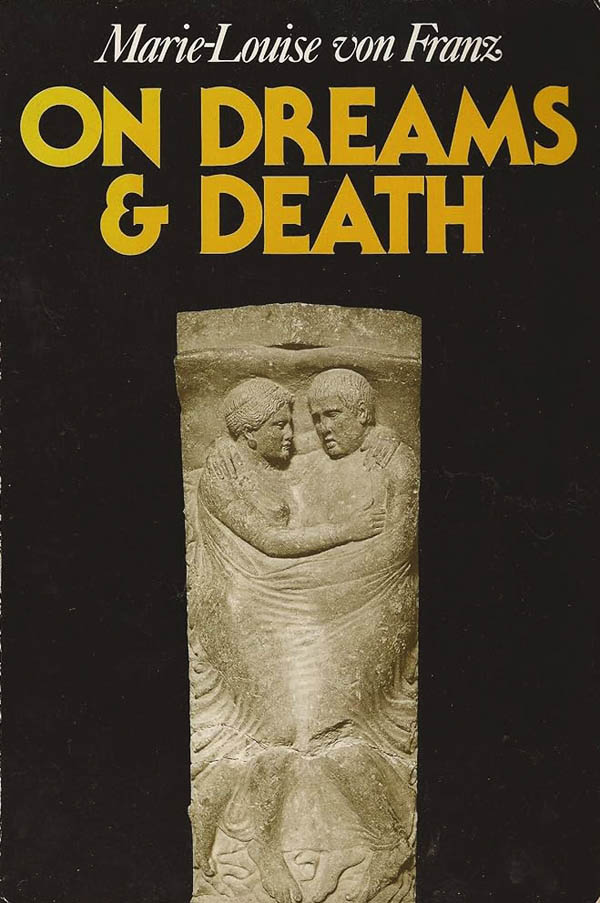The study of history shows that revolutionary developments in human thought spring from surprisingly quiet beginnings, and that the people making the pioneering discoveries rarely recognize the future significance of their work. History also suggests that the full implications of their discoveries become most powerful and most influential on the rest of society only when these people reach, and then cross, a certain threshold; when they begin to share their ideas together, to try and integrate their different findings, and to join with each other in common ventures.
The Civil Rights Movement is a good example of this. While lone writers and activists had been struggling against racism for decades prior to the 1960's, it took the efforts of a dedicated group of people, working together, drawing on the visions of those earlier figures, and addressing the concrete problems of their day, to succeed in abolishing practically all state-sponsored racism and bringing on a new era of equality.
Although having far more humble aims than those of the Civil Rights Movement, I believe that those of us interested in dreams today stand at a similar kind of historical threshold. We are in a position now to look back at the work of the various pioneers in the dream world, to relate their discoveries to each other, and thus to come to new understandings of their value. Further, we now may find that these new understandings raise entirely new questions about dreams that couldn't even be asked before, questions that may become the starting points for our own original explorations.
And still further, if we share our explorations with each other and relate them to the life and problems of our society, our dream studies may uttimately contribute to the solutions of those problems.
But is all this too much to expect from the scattered few of us who take an interest in what many people still view as the chaotic and senseless imaginings of the sleeping mind? Is it too ambitious to suggest that a "Dream Movement" is being born? On the contrary, I believe this is exactly what is happening. We can be likened to the midwives of this birth, helping what was conceived in the seminal efforts of past figures take shape, nurturing its emergence into the present, and guiding it on its way toward a future maturity.
If we play a little bit with this metaphor of today's dream explorers as midwives to the birth of a Dream Movement, we will see that besides describing what is going on, it also points to certain responsibilities that we need to fulfill.
The first responsibility would be to develop a deeper awareness of the history of dream study, dream interpretation, dream art - in short, we need to answer the question, "How have we gotten here?" before we can make any sound decisions about where we're going. And while historical analysis is often a tedious matter, in our case it actually leads to some extremely exciting realizations. Dreams have fascinated humankind from time immemorial - yet the last 90 years or so have seen the most profound and dramatic discoveries about dreams and dreaming ever. Indeed, we are now living in what may confidently be called "The Golden Century of Dreaming."
Beginning in 1900 with Freud's The Interpretation of Dreams and continuing with Jung's theories of the archetypes, the collective unconscious, and the individuation process, the field of dynamic psychology rescued dreams from the contempt of Enlightenment rationalism. It showed that dreams, far from senseless and arbitrary, are coherent, meaningful expressions of the unconscious.
Aserinsky and Kleitman's sleep lab research in the 1950's initiated a series of astounding experimental discoveries, among them the facts that all people dream every night, whether they remember it or not, and that the process of dreaming is crucial for psychological and physiological health. Stephen LaBerge's remarkable studies of just the past ten years into lucid dreaming has shaken conventional understandings of dreams to their very foundations. And more generally, the abundance of anthropological research in recent decades has taught us more about the dream beliefs and practices of different cultures, western and nonwestern, ancient and modern, than has ever been known before.
This is our historical legacy. It is a rich and exciting one - filled with bursts of creative insight and with inspiring suggestions for future journeys. But, it is still a very inchoate, fragmentary legacy. These discoveries have for the most part remained isolated from one another. For example, sleep lab research has generally ignored the dynamic psychologies and their claims that dreams are meaningful; the dynamic psychologies in turn have tended to see the understandings of dreams in other cultures as evidence for their own theories, rather than as legitimate ideas in their own right.
Our first responsibility, that of deepening our historical awareness, thus discloses to us that while we are the heirs to some tremendously creative discoveries, there is also a lack of open, mutual dialogue amongst those who have made these discoveries. Our second responsibility, then, becomes clear; we need to create such a dialogue, to stimulate interactions between the different realms of discovery, and to build up a multi-faceted understanding of dreams which is broader than that available from any single source.
We all know that no dream has only one meaning, and that we best understand a dream by teasing out as many of its subtle and varied meanings as we can. The same principle applies to our understanding of dreams in general. What could the dynamic psychologies learn if they made a concerted effort to introduce lucid dreaming techniques into their therapeutic practices? How might lucid dreamers understand their personal experiences better if they knew more about the similar experiences of other cultures throughout history? How much more insight could we get into the dream theories of those other cultures if we looked at them with the discoveries of sleep lab research in mind?
All of these questions remain just that, questions; a dialogue has yet to develop fully which would be answering them. But it is the generation of such dialogue which transforms a group of loosely related discoveries into a growing, dynamic movement. Again, we have now reached a position where we can make the potential for dialogue among the various fields of dream study a reality.
As we consider the ways in which the original discoveries were made, we see that we have a third responsibility; to remain faithful to our own experiences. Had any of the pioneers of the dream world paid attention only to the reigning theories of their day rather than to their own experiences and intuitions, they would never have discovered the new truths that they did. Likewise, even while we affirm the importance of learning as much as we can about different dream theories and practices, we must be careful to use this knowledge as inspiration and guidance for our own investigations, rather than allowing it to limit us.
At the same time, however, the nature of our interests imposes a special responsibility on us. We are often accused of "navel-gazing," of using our dreams to escape the complex and often painful reality of our day-to-day world. This criticism is unfair, of course, for dreams are in fact a tremendously valuable source of insight into the ills plaguing the social world. But it is true that the relationship of dreams to society is difficult to perceive, and thus we have the important task of illuminating this relationship to the rest of our community. We must show how dreams reveal the roots of many social conflicts, how they point to features of those conflicts that we've been overlooking, and how they suggest possible solutions to problems that have resisted all attempts at rational treatment.
These, then, are some of the responsibilities I believe we have as the "midwives" of the Dream Movement - to develop a deeper awareness of our historical roots, to stimulate an interdisciplinary dialogue, to remain faithful to our own experience, and to relate our efforts to the broader life of the community in which we live. I hope that my mildly normative language has not been offputting to anyone. It's just that I believe that these are the basic principles we will have to try and follow if the potential of the Dream Movement is to be actualized.
But the effort will be worth it, for this potential is truly breathtaking. We are exploring new realms of human nature and human experience never before imagined; we are learning new ways of communicating across cultural and historical boundaries; and we are finding new resources for responding to the problems plaguing our society. What other truths and wonders we will discover, once we join together in our pursuits, can only be dreamed of.


